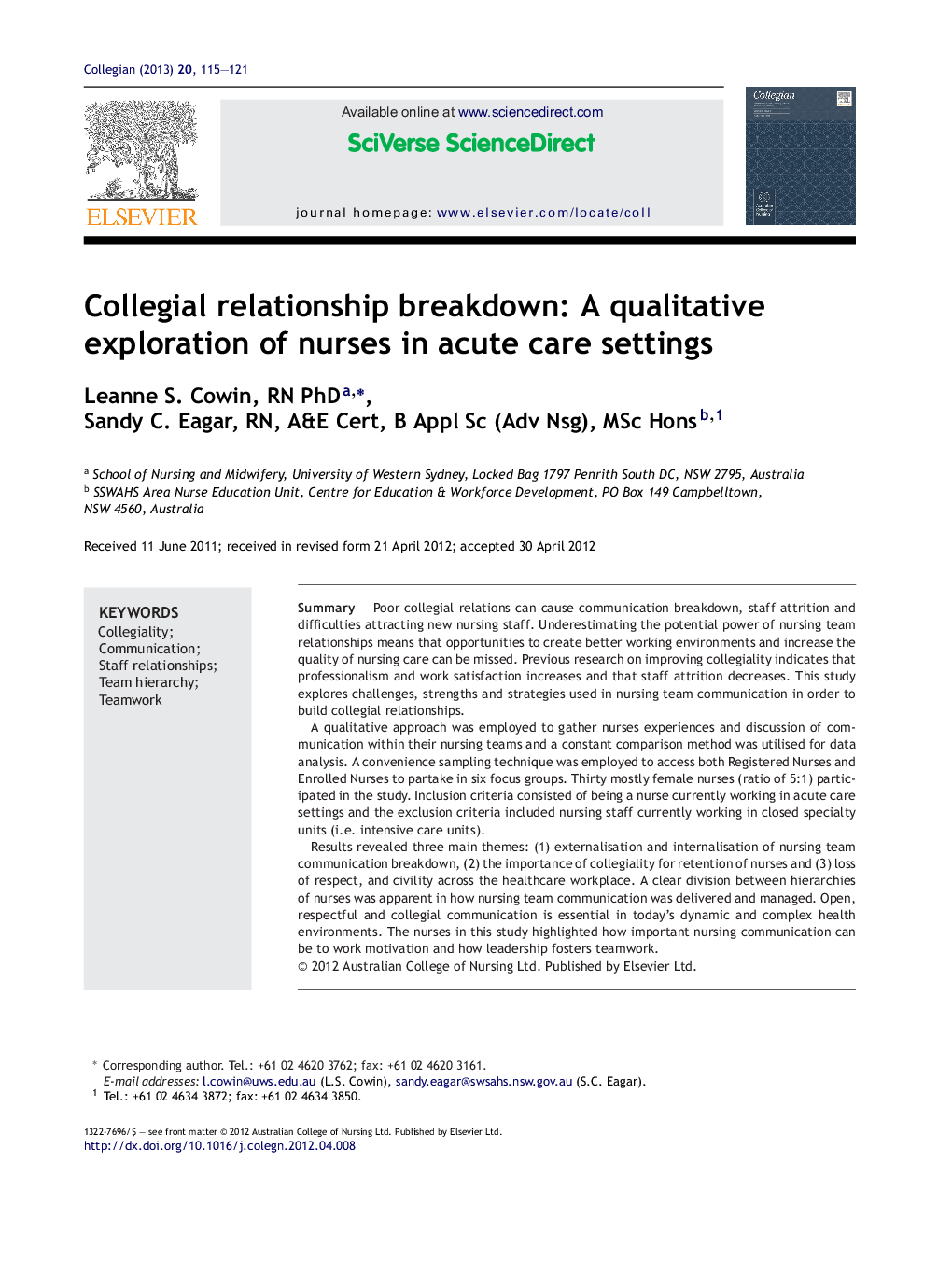| Article ID | Journal | Published Year | Pages | File Type |
|---|---|---|---|---|
| 2646898 | Collegian | 2013 | 7 Pages |
SummaryPoor collegial relations can cause communication breakdown, staff attrition and difficulties attracting new nursing staff. Underestimating the potential power of nursing team relationships means that opportunities to create better working environments and increase the quality of nursing care can be missed. Previous research on improving collegiality indicates that professionalism and work satisfaction increases and that staff attrition decreases. This study explores challenges, strengths and strategies used in nursing team communication in order to build collegial relationships.A qualitative approach was employed to gather nurses experiences and discussion of communication within their nursing teams and a constant comparison method was utilised for data analysis. A convenience sampling technique was employed to access both Registered Nurses and Enrolled Nurses to partake in six focus groups. Thirty mostly female nurses (ratio of 5:1) participated in the study. Inclusion criteria consisted of being a nurse currently working in acute care settings and the exclusion criteria included nursing staff currently working in closed specialty units (i.e. intensive care units).Results revealed three main themes: (1) externalisation and internalisation of nursing team communication breakdown, (2) the importance of collegiality for retention of nurses and (3) loss of respect, and civility across the healthcare workplace. A clear division between hierarchies of nurses was apparent in how nursing team communication was delivered and managed. Open, respectful and collegial communication is essential in today's dynamic and complex health environments. The nurses in this study highlighted how important nursing communication can be to work motivation and how leadership fosters teamwork.
